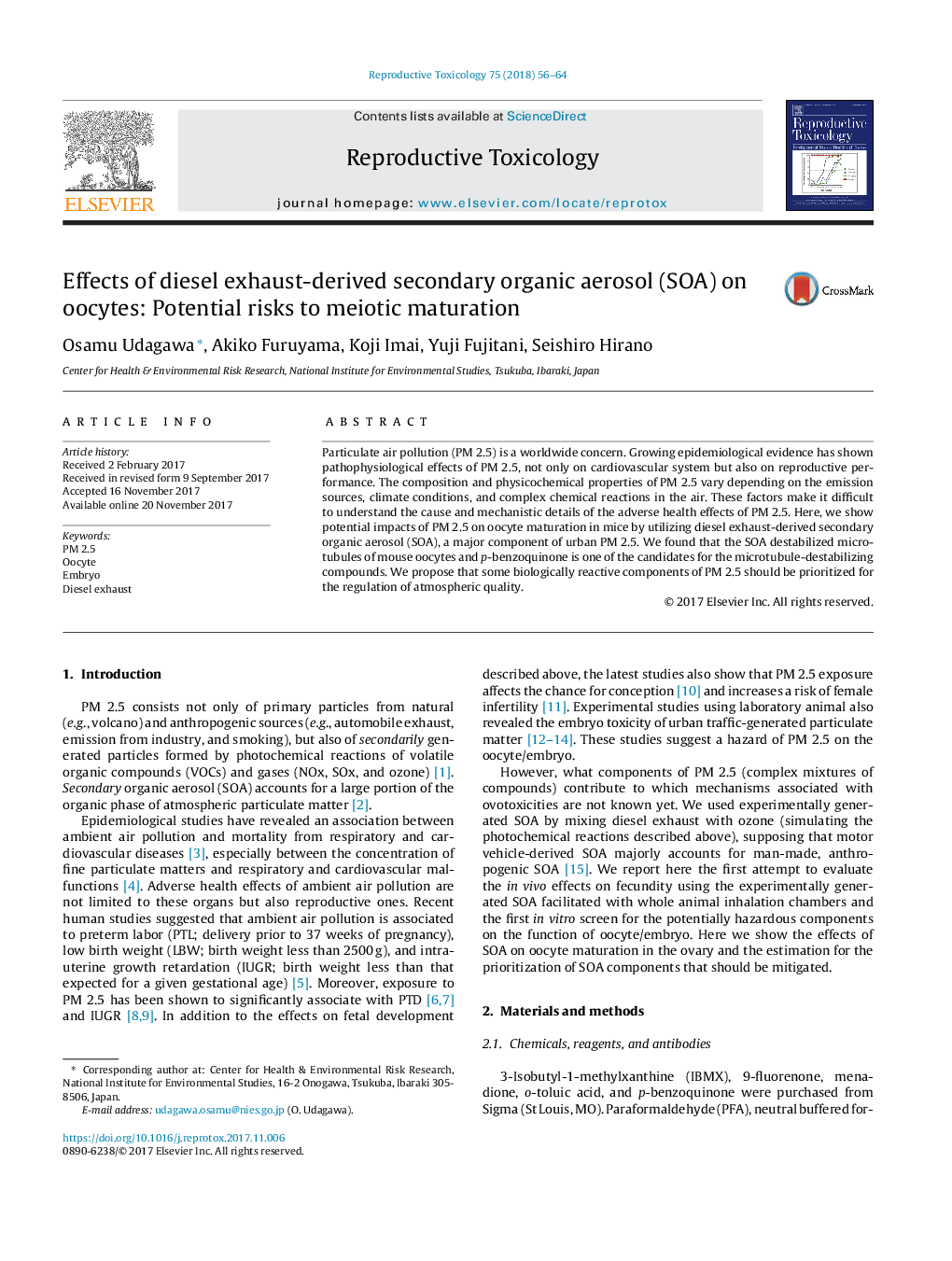| Article ID | Journal | Published Year | Pages | File Type |
|---|---|---|---|---|
| 8552441 | Reproductive Toxicology | 2018 | 9 Pages |
Abstract
Particulate air pollution (PM 2.5) is a worldwide concern. Growing epidemiological evidence has shown pathophysiological effects of PM 2.5, not only on cardiovascular system but also on reproductive performance. The composition and physicochemical properties of PM 2.5 vary depending on the emission sources, climate conditions, and complex chemical reactions in the air. These factors make it difficult to understand the cause and mechanistic details of the adverse health effects of PM 2.5. Here, we show potential impacts of PM 2.5 on oocyte maturation in mice by utilizing diesel exhaust-derived secondary organic aerosol (SOA), a major component of urban PM 2.5. We found that the SOA destabilized microtubules of mouse oocytes and p-benzoquinone is one of the candidates for the microtubule-destabilizing compounds. We propose that some biologically reactive components of PM 2.5 should be prioritized for the regulation of atmospheric quality.
Keywords
Related Topics
Life Sciences
Environmental Science
Health, Toxicology and Mutagenesis
Authors
Osamu Udagawa, Akiko Furuyama, Koji Imai, Yuji Fujitani, Seishiro Hirano,
